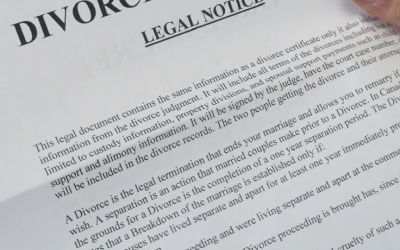
What’s New With Divorce in Philippines? – Exciting Development 2024
Table of Contents ▼
Divorce in Philippines presents a significant challenge for many Filipinos due to the country’s restrictive laws.
Although divorce is still illegal in the Philippines, recent legislative initiatives and alternative solutions in Abu Dhabi provide fresh routes for people looking to call their marriages off.
Table of Contents
This blog provides insights into these options and how Easy Wedding Oman can assist in facilitating this transition smoothly.
Understanding the Current Legal Situation in the Philippines
The Legal Restrictions
The lawmakers are strict in their prohibition of divorce in Philippines due to their respect for the deeply embedded Catholic custom.
The 1987 Philippine Constitution emphasizes the sacredness of marriage, reflecting the country’s strong religious convictions. As a result, only annulment and legal separation are accepted as alternatives to divorce in Philippines.

Annulment, which declares a marriage void from the outset, can be a difficult and expensive process that involves factors such as psychological incompetence, fraud, or lack of consent for children.
On the other hand, legal separation permits couples to live apart without dissolving their marriage, barring either side from remarrying.
Personal Impact and Challenges
The absence of legal divorce in Philippines can have serious consequences for individuals, locking many in unpleasant or abusive marriages. The lack of legal process frequently causes severe emotional and psychological pain, hurting both individuals and their families.
Annulment and legal separation, while possible, can be excessively expensive and time-consuming, enforcing the challenges faced by couples trying to dissolve their marriages.
Recent Legislative Developments
House of Representatives Bill Proposal
Recent legal measures have signaled a potential shift toward divorce in Philippines. A bill voted by the House of Representatives seeks to repeal the divorce in Philippines ban, citing grounds such as irreconcilable differences, psychiatric incompetence, and domestic violence.
This proposed bill would go a long way toward making divorce in Philippines more accessible and efficient for spouses.
Next Steps: Senate Approval

While the bill’s passage through the House of Representatives is a great milestone, it must also be approved by the Senate before it can become law.
This procedure will include much debate and evaluation. If the Senate passes the bill, it might provide a critical option for couples in problematic marriages by establishing a legal avenue to separation.
Exploring Alternatives: Divorce in Abu Dhabi
Why Abu Dhabi is a Viable Option
For those unable to wait for changes in the Philippines, Abu Dhabi presents as an alternative. The capital of the United Arab Emirates offers a legal process for divorce that is accessible to Filipinos.
The divorce process in Abu Dhabi involves submitting a petition to the Abu Dhabi Personal Status Court, which handles family law matters for non-Muslims. The court follows civil law principles, ensuring a fair and impartial procedure.
Efficient and Simplified Procedures
A key advantage of pursuing divorce in Abu Dhabi is the efficiency and simplicity of the process.
The court system is designed to handle divorce cases swiftly, with clear guidelines and procedures. This efficiency contrasts sharply with the often lengthy and complex annulment process in the Philippines.
Support services in Abu Dhabi, including legal firms specializing in family law, provide comprehensive assistance, ensuring that individuals can navigate the process with minimal stress.
Remarrying in Abu Dhabi
Marriage Procedures
In addition to providing a remedy for divorce in Philippines, Abu Dhabi also facilitates remarriage for previously married individuals.

The process of remarrying in Abu Dhabi is simple; couples must produce valid identification, proof of legal competence to marry, and a certificate of no obstacle if previously married.
The marriage ceremony takes place at the Abu Dhabi Civil Family Court, which oversees non-Muslim marriages.
Advantages of Remarriage
Remarrying in Abu Dhabi has various advantages.
The legal acknowledgment of the new marriage provides a sense of security and validity, guaranteeing that the relationship is legal under UAE law. The process’s simplicity and efficiency make it appealing to individuals looking for a fresh start.
The shortened procedures and support services make it easy for couples to traverse the process, letting them start their new lives with confidence and stability.
How Easy Wedding Oman Can Help
Easy Wedding Oman provides Filipinos with services for divorce in Philippines and remarriage.
Our skilled legal support and comprehensive services in Abu Dhabi are intended to aid a smooth transfer, ensuring that all requirements are completed and that the process is stress-free as possible.

Whether you are considering divorce in Philippines or preparing to remarry, Easy Wedding Oman is here to help you every step of the road.
Conclusion
The complexities of divorce in Philippines and remarriage present unique challenges for Filipinos, particularly given the restrictive legal environment.
For those wishing to divorce and start over, Abu Dhabi’s modern legislative changes and workable solutions provide reasonable options.
Easy Wedding Oman provides professional support and help to easily negotiate these procedures in Abu Dhabi courts. Get in touch now to discuss how we might help you discover the personal freedom and happiness you are due and start fresh.
Our team is here to help you at every level, so we guarantee a flawless and successful change to your new beginning.
FAQs
How can Filipinos protect their rights in the absence of divorce?
Filipinos can protect their rights by seeking legal separation, annulment, or utilizing international options like obtaining a divorce abroad, and by consulting with legal experts to navigate these processes.
Is divorce still banned in the Philippines?
Yes, divorce is still banned in the Philippines. The country is one of the last remaining nations where divorce is not legally allowed, primarily due to the strong influence of the Catholic Church and the country’s deep-rooted cultural values.
Are Filipino Muslims permitted to divorce in the Philippines?
Yes, Filipino Muslims are allowed to divorce under the Sharia Law, which governs Muslim marriages.


